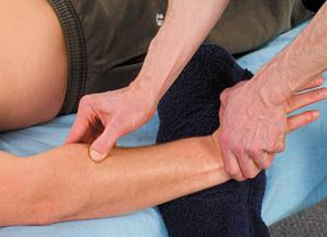
 What is Radial Tunnel Syndrome?
What is Radial Tunnel Syndrome?
Radial tunnel syndrome is a condition where the radial nerve is compressed in the forearm at a particular area known as the “arcade of Frohse” This area is approximately 5cm from the elbow on the lateral side of the forearm. The radial nerve is one of the main nerves in the arm which supplies sensation and motor control of the extensor muscles of the fingers, wrist and upper arm.
The radial nerve is one of the three main nerves that provides motor function and feeling to the arm. It runs from the neck to the upper arm, then to the elbow and alongside the bones and muscles in the forearm then into the wrist and hand.
What causes Radial Tunnel Syndrome
Compression of the radial nerve in the forearm can occur due to a number of reasons including the following:
- Lateral epicondylitis or “Tennis Elbow”
- Inflammation of surrounding tissues
- Radial Head fracture
- Traumatic injury
- Bone tumour

Symptoms of Radial Tunnel Syndrome
Your hand therapist will need to individually assess your symptoms in order to provide a diagnosis.
In contrast to carpal tunnel syndrome (which is a compression of the median nerve), radial tunnel syndrome can be difficult to diagnose as it rarely causes symptoms of numbness or pins and needles. Symptoms can include sharp, cutting, piercing, or stabbing pain at the forearm, which may be worsened with forearm rotation, repetitive wrist or finger extension or prolonged positioning in pronation.
Clinical examinations
Your therapist can assess you for radial tunnel syndrome. Sometimes nerve conduction testing is useful, your hand therapist can advise you whether this is required.
Treating Radial Tunnel Syndrome
Your therapist can tailor make a program to address your concerns which may include a combination of rest, education regarding activities to avoid, strapping or splinting, specific nerve exercises and strengthening exercises.
Surgical treatment
In cases where the symptoms are severe or do not respond to therapeutic treatment, further options may include corticosteroid injection or surgical release of the nerve.
Your therapist can discuss with you and your GP to arrange a referral to a surgeon if required
If you are suffering from any of these symptoms, or any other issues with the hand, arm or fingers, please feel free to get in touch with the Hand TherapyGroup here, we would be more than happy to help.
